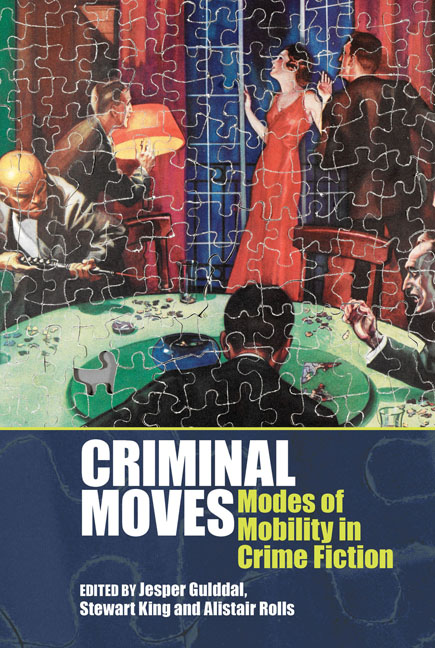11 - The Reader and World Crime Fiction: The (Private) Eye of the Beholder
Summary
In Through Other Continents: American Literature across Deep Time Wai Chee Dimock asks us to imagine a literary history ‘divided, not into discrete periods, and not into discrete bodies of national literature’. What would such a field look like, she asks, and ‘[w]hat other organizing principles might come into play’ (2006: 73)? This chapter engages in the sort of literary imagining that Dimock proposes. Taking genre as a case study, this chapter treats crime fiction as a transnational phenomenon and examines how we might conceive of relationships between crime writers, readers and texts that eschew the common categorization of a universal British-American tradition, on the one hand, and, on the other, localized national traditions. The aim of imagining different forms of textual kinship that I propose in this chapter is not to fix new taxonomies, to demobilize a genre that is inherently mobile; it seeks instead to produce innovative reading strategies that validate new organizational principles beyond the traditional foci of nation and history. With this in mind, the chapter develops a reading practice of world crime fiction that acknowledges local specificity and also allows for the emergence of new transnational and trans-historical readings. This practice is centred on the reader – here the private eye of the beholder from the chapter title – whose conscious engagement with a variety of texts from around the world can make possible the sort of global literary imagining promoted by Dimock.
The Study of Crime Fiction
With the exception of a few recent publications that are mentioned below, the study of crime fiction tends to be bound by the discrete periodization and national identification that Dimock urges us to overcome. The Cambridge Companion to Crime Fiction (2003) serves as a clear example of this, with chapters dedicated to the genre's chronological development (chapters 1–3, 9–10) and to different national traditions, which are limited to France, Britain and America (chapters 4, 9–10).1 This collection, and others like it, points moreover to another important categorization in crime fiction studies. That is, the separation between a British-American tradition that acts as a universal norm and a subset of peripheral national traditions. While differences do exist between British and American crime fiction, in general they are treated as two sides of the same coin which, like the greenback, acts as an international currency against which all other crime fiction traditions are valued and compared.
- Type
- Chapter
- Information
- Criminal MovesModes of Mobility in Crime Fiction, pp. 195 - 210Publisher: Liverpool University PressPrint publication year: 2019

